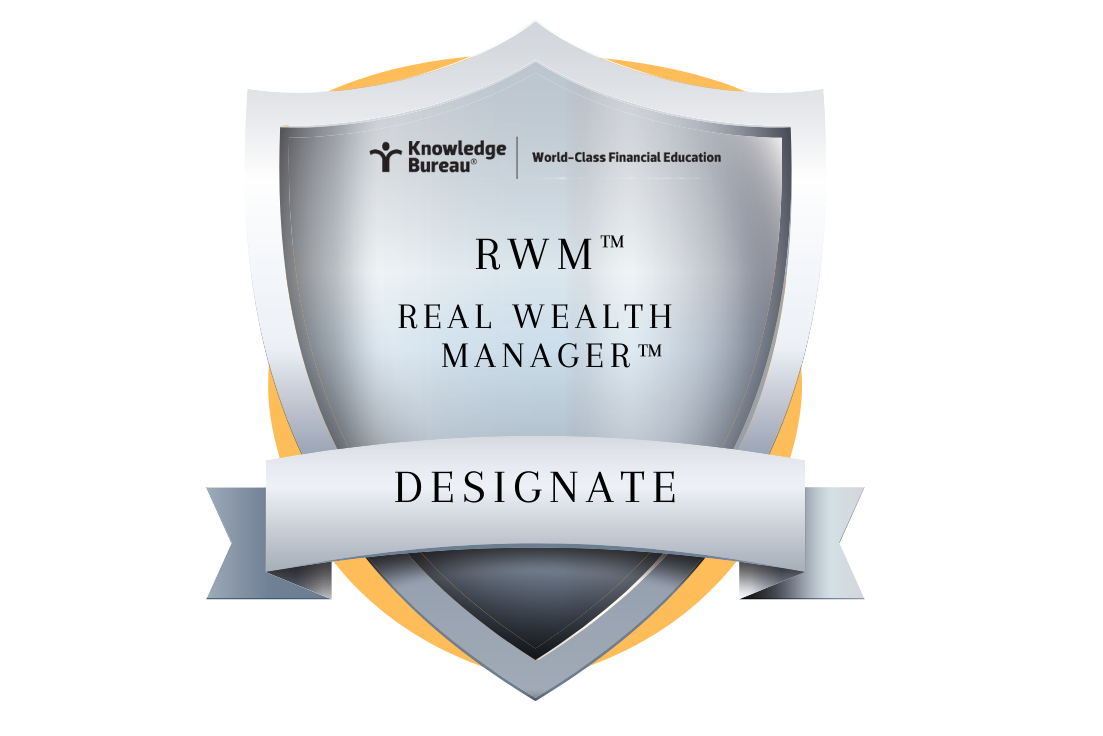Real Wealth Management: Push Back on Economic Malais

Investors need to quickly sharpen their tax and financial skills to meet more challenging times ahead, and a good way to start is to find the right advisor says Knowledge Bureau Founder and President Evelyn Jacks, best-selling tax financial author and award-winning educator. That’s someone who is prepared to work with you holistically and with a multi-stakeholder approach to building sustainable family wealth – after taxes, inflation and fees.
“We are weathering through the most significant economic shock in a decade; with levels of uncertainty that are unprecedented,” says Mrs. Jacks. “Tax and financial decisions must align with grim economic triggers – high inflation, high interest rates, labor market changes, higher taxes – and changing life events, too. Those challenges are new; that means tax and financial plans must be different, too.”
Finding the right professionals, with up-to-date credentials is challenging for most people, says Jacks, but it’s a foundational investment for 2023. “How do you find an Advisor for Your Future - someone with deep and broad knowledge who can help assemble a team of specialists – a tax, financial and legal assistance? It’s a question I’m often asked.” she says. “At Knowledge Bureau we have pioneered a professional designation that addresses this exact need for a collaborative and multi-generational approach – the RWM™ or Real Wealth Manager.”
"This is a key strategist whose focus is to work with other advisors critical to your overall financial success: tax accountants, insurance, investment, retirement and estate specialists, and in many cases, medical specialists, too. They should also challenge you to do three things, says Jacks: stick to your plans, look for tax advantages and maximize tax efficient investment solutions.”
They should also identify critical financial decisions to make for 2023. Jacks says many of them involve awareness of new tax provisions and tax efficient investment opportunities. Finding new money in 2023 is all about understanding your tax advantages as a household economic unit.
She provides three critical questions as a primer in starting new conversations with tax and financial advisors:
- What tax provisions will help us increase cash flow this year? There’s lots of news. For example, high prices at the gas pumps can be offset with new Climate Action Incentive Payments in seven provinces in 2023; the next one happens January 13 in four of them – Alberta, Saskatchewan, Manitoba and Ontario[1].
Also coming soon: the indexed Canada Child Benefit (CCB) payment on the 20 of both January and February, and the indexed OAS, CPP and GIS (Guaranteed Income Supplement) benefits on the 27th of both January and February. Canada Veterans’ Disability Benefits will arrive January 30 and February 27.
Canadian families can also qualify for the new Canada Dental Benefit. To tap in you must file a tax return. Be sure to catch up on missed tax returns as soon as possible to maximize your RRSP deduction, too, and avoid clawbacks.
- How can we Decrease Income Taxes? Discuss income splitting within the family for the best after-tax results. It’s a great way to increase cash flow – every two weeks –to pay family expenses, make investments and stay out of debt. To do that, learn more about tax. For example, the “tax free zone” is now $15,000 - no federal taxes are payable when income falls below this. And, due to high inflation rates, personal amounts and tax brackets have been indexed by 6.3%[2]. Individual income levels can reach $53,359 and still be within the lowest federal tax bracket of 15%. The next bracket attracts a 20.5% rate up to $106,717[3]. For a couple that evenly splits income, that’s $213,434 for the household.
- What About Tax Changes in Real Estate? Residential real estate transactions are subject to a number of new tax measures in 2023 including the new Tax-Free First Home Savings Account (FHSA), the refundable Multi-Generation Home Renovation Tax Credit and doubling of the non-refundable New Home Buyer and Home Accessibility Tax Credits. But there are tax traps: residential home flipping within 365 days of purchase will not only cancel the Principal Residence Exemption but require a 100% income inclusion for the profits, except in limited instances.
These measures are complex and require planning. They can affect other investment opportunities – such as TFSA and RRSP contributions, or decisions about what accounts should be used to buy, sell or improve real estate.
That’s where a Real Wealth Manager comes in. The Society of RWMs, a networking group of professionals all of whom practice Real Wealth Management will be providing a free virtual information session on January 25 at noon CT. The session will also overview sophisticated Knowledge Bureau Discovery Calculators used in holistic investment, tax, retirement and estate planning. The session qualifies for CE Credits as well.
To register click here. For more information contact: Evelyn Jacks, President, Knowledge Bureau, Evelyn.jacks@knowledgebureau.com.
[1] Newfoundland, Nova Scotia and PEI will start receiving payments in 2023 in July and October and January 2024
[2] This compares to 2.4% in 2022 and 1% in 2021.
[3] Note, taxpayers must add provincial taxes and calculate tax credits to compute final taxes payable.